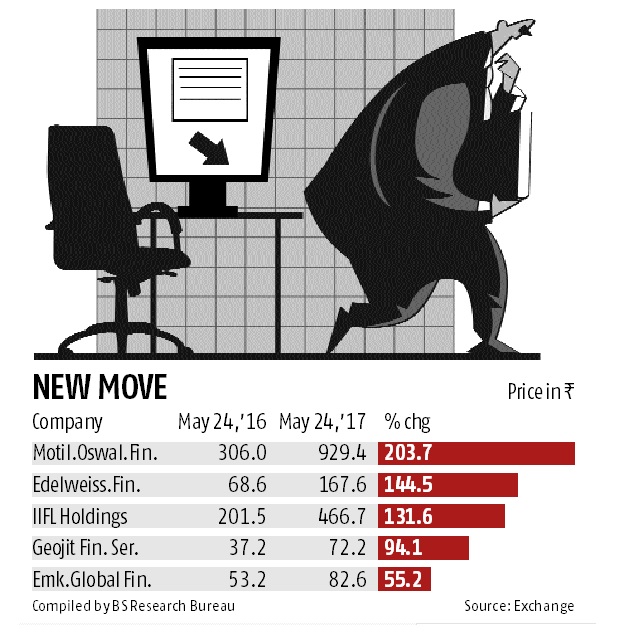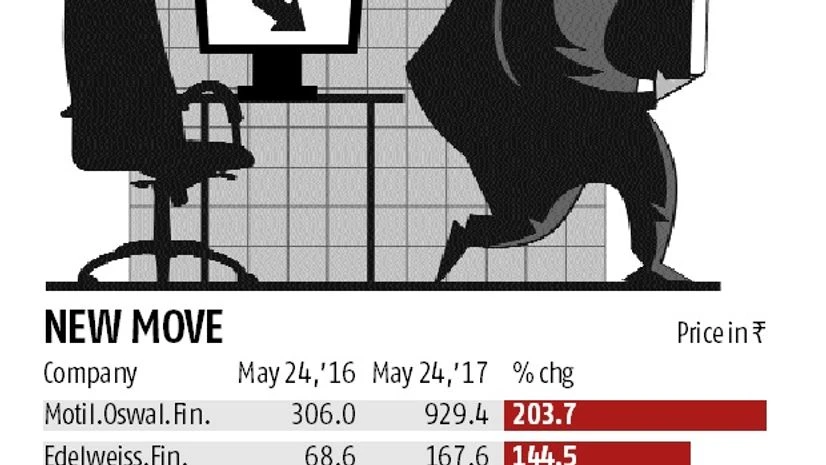The domestic broking sector had significantly reduced its personnel after the global financial crisis hit in 2008. It has resumed hiring since 2015 to cater to a surge in clients, especially of high net worth individuals. However, despite the surge in the market, hiring has been much more restrained than in the heydays of 2006-07, with staffer addition at 10-15 per cent of that in 2007. Large domestic brokers are focusing on the online space, where the personnel required is much lower than in the offline one.
The focus now is on upgrading of technology and moving toward automation. The traditional way of selling financial products, through ‘cold calls’ or sitting face to face with the customer, is declining. Trades are now mostly done online or through mobile phone applications, offering both convenience and privacy.
“Our product team has changed from a brick and mortar one to a tech-driven one. Most of our product team comprises IT (information technology) engineers,” said B Gopkumar, chief executive, Reliance Securities.
Sales teams have been the biggest casualty from this move toward IT and automation. “There is not much hiring on the sales side to service offline clients. The only exception being the private client group team which caters to high-end clients,” said Gopkumar.
Even individual brokers are moving towards automation. Angel Broking introduced ‘ARQ’ last year, an intelligent and predictive investment engine for individual investors, powered by the strength of machine learning and cognitive technology. ARQ uses algorithms, quant and modern portfolio theory to enable personalised investment advice, based on an individual’s financial goals and risk profile.
Retail broker Sharekhan (now part of BNP Paribas) announced earlier this year that it would spend $15-20 million (Rs 100-130 crore) in the next five years for a digital push. Which would include a greater focus on mobile services, fully-automated robo advisory services, a new website and upgrading its trading platform.
More From This Section
On Wednesday, Axis Securities introduced trading through voice commands on its AxisDirect Mobile app. The voice command feature aims to cut the time taken for transacting and navigating.
Technology has come into focus especially after the proliferation of discount brokerages. “Trades are being driven mostly through mobile apps because of the high smartphone penetration. Large traditional brokers, as well as discount brokers, are building do-it-yourself solutions where human intervention is minimal or nil and the solutions offered are cheaper, faster and more accurate,” said Vikas Singhania, executive director at Trade Smart Online.
Discount brokers offer web-based platforms, without research and advice. Clients are charged a flat fee for each trade, irrespective of its value. Unlike the flat fees charged by discount brokers, most full service brokers charge a fee as a percentage of total turnover.
Brokers have been struggling after 2007 as margins have shrunk, owing to the increase in low-yield options volumes, about 80 per cent of total market turnover today, from only a tenth in 2007-08.



)
